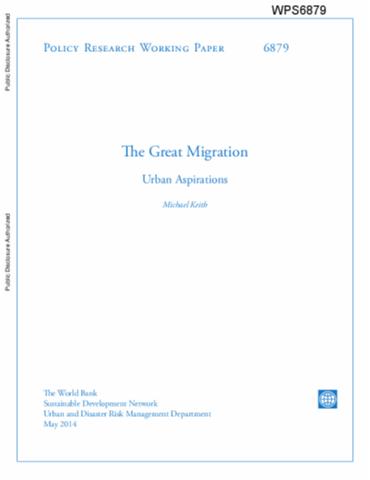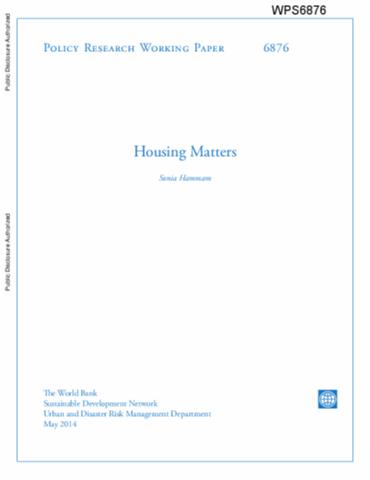The Great Migration : Urban Aspirations
The great 21st-century migration into cities will present both a great challenge for humanity and a significant opportunity for global economic growth. This paper describes the diverse patterns that define this metropolitan migration. It then lays out a framework for understanding the costs and benefits of new arrivals through migration's externalities and the challenges and policy tradeoffs that confront city stakeholders.




